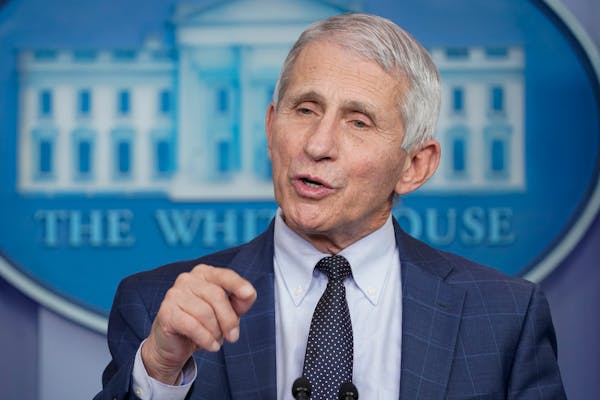More than 1 million COVID-19 cases have been diagnosed in Minnesota since the pandemic began in the state nearly 22 months ago.
State health officials announced another 4,155 new cases Monday, bringing the total number of infections to 1,000,361.
It has taken just 27 days for the state to add 100,000 new cases. The previous 100,000 took 26 days before that, making this one of the fastest-growing surges since late last year.
In the past few weeks, however, case growth has slowed, with the testing positivity rate at 8.6%, down from the most recent high of 11.5% in early December.
But with the highly contagious omicron variant now the dominant strain in the state, according to health officials, Minnesota could see an escalation of infections similar to what is happening in many other states.
Booster shots could slow the spread, according to a new study using Minnesota health records.
"Individuals who received a booster had a greater protection from infection and hospitalizations," said Dr. Paul Drawz, an associate professor at the University of Minnesota Medical School and lead author of the study, which has yet to be peer-reviewed.
Using COVID-19 vaccination records for 4.5 million patients, the study found that vaccine effectiveness against infection increased from 45% to 88% for those who received the Pfizer booster and 65% to 91% for those who got the Moderna booster. Hospitalizations also were less likely for those who had received a booster.
The study, believed to be the largest of its kind to evaluate booster effectiveness in the United States, used patient medical records from 11 health systems that are part of the Minnesota Electronic Health Record Consortium, which was formed to conduct large-scale research. Researchers did not have access to private information about the patients.
Vaccine effectiveness improved the most in groups that have been hit hardest by the pandemic that received the booster.
"The benefit is greater in those that are elderly and with comorbidities," where effectiveness nearly tripled, Drawz said.
Researchers ended the analysis before the omicron variant took hold, so it is unclear whether the booster's effectiveness remains the same under the new variant compared with delta.
The study's researchers also found racial and ethnic disparities among those who have received boosters.
"The folks who have received the booster are disproportionately white compared to groups that have been fully vaccinated," sad Dr. Tyler Winkelman of Hennepin Healthcare.
More than 1.6 million booster doses have been administered in Minnesota, and 67.2%, or 3.5 million of the state's population 5 and older, have been fully vaccinated.
A total of 53 new deaths were announced Monday, including two people who were in their 30s. So far 10,359 Minnesotans have died of COVID-19 related complications.
COVID-19 hospitalizations have decreased, with 1,394 coronavirus patients as of Thursday. That's down from the high of 1,678 on Dec. 9.
Still, along with hospitalizations from other diseases and trauma cases, 98% of adult ICU beds were full and 54 of the 68 hospitals with adult ICU beds were full.
Altogether, 50,127 patients have been hospitalized with COVID-19 since the pandemic began in March 2020. Of those, 9,837 have needed intensive care.
Minnesota reported another 9,120 breakthrough cases for the week that ended Nov. 21, the most recent data available. Breakthrough cases include those who tested positive at least two weeks after their last shot. Altogether, 3.9% of fully vaccinated residents have had a breakthrough infection, while the number who have needed hospitalization or who have died is less than 1%.
Minnesota's case count includes nearly 12,800 who have become infected with COVID-19 more than once. The total number of Minnesotans who are known to have caught COVID-19 stands at 987,599. However, the actual number is likely higher because not all of the people who became infected were tested for COVID-19.

Want to share info with the Star Tribune? How to do it securely

'Safe recovery sites' would offer syringes, naloxone and more to people using drugs. The plan could be in peril.
New Minnesota GOP leaders seek peace with party's anti-establishment wing

Who is Republican Lisa Demuth, Minnesota's first House speaker of color?

